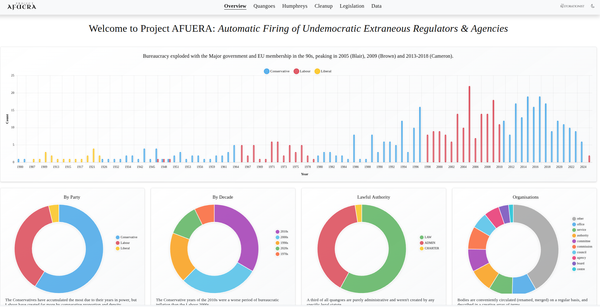Meta-Narratives, Economic Game Theory, and Intoxicating Fallacy
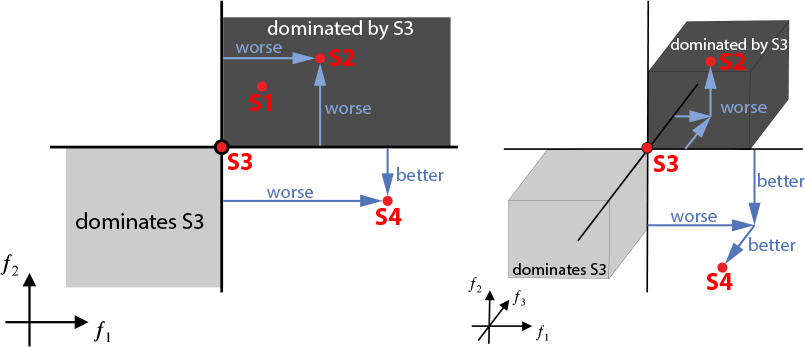
** Money, wealth, income, and resources, are different concepts, with complex, interacting factors influencing their dimensions.
Fact: money, wealth, and resources are unequally distributed, and the disparity is increasing.
We can all agree that the observation is undeniably correct. We have a problem. Capitalism produces an unequal outcome. The question is far more complex than an ideological screaming match or teenage guilt trip.
Our attempts to measure the differences in how much money people have mainly rely on the Gini coefficient (0 being perfect equality of distribution, 1/100 horrible inequality).
More: http://www3.nccu.edu.tw/~jthuang/Gini.pdf
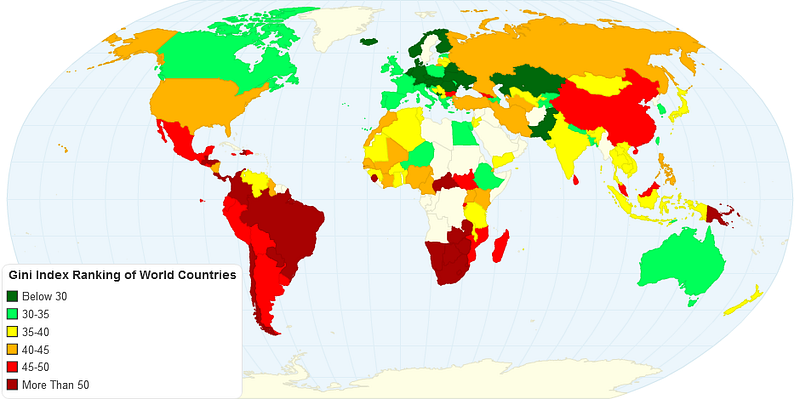
What we immediately visually observe is the highest level of unequal distribution (the corrupt blocking of access to social mobility) is found in the developing world (which correlates to levels of corruption). Those with a low index have a well-developed strata with an established middle class.
If we compare it to (2015) income per person, a potentially similar trend occurs.
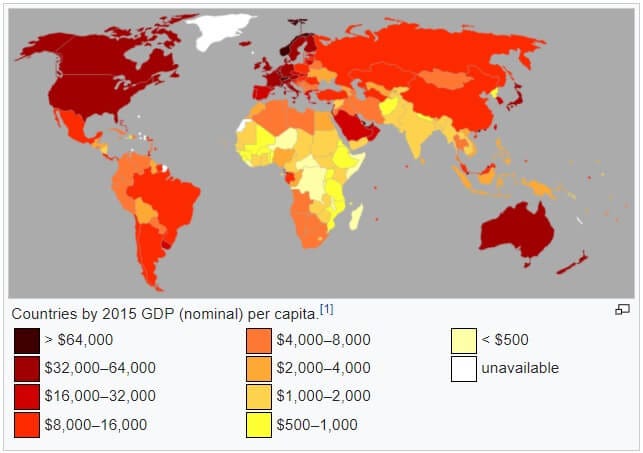
Then if we take growth rates to see how much of this wealth is new:

What do the US, China/Hong Kong (hist.), Bhutan, Singapore, India, Panama, — the world’s fastest growing countries (5–12%+) over the last decades — all have in common?
Their economic game is arranged to lead people to believe they can play and compete where they can win, or at least move up in, or gain, from playing. One that is reasonably fair, with reasonable chances. The referee gets involved as least as possible.
What do Venezuela, Jamaica, Brazil, Zimbabwe, — corrupt African, Caribbean, and South American poverty zones — all have in common?
The game is hijacked and rigged by a small, malevolent group of stratified cheats, conspiring to arrange the play for themselves. Access to play and/or advancement through it, is blocked and controlled, so nobody can move, gain, or win. Gameplay is unfair, so players refuse to participate, or resort to equal or more intensely malevolent means to win at the same “cheated” game.
Econophysics: if we all start with $10…
In a quiet corner of academia, there are some fascinating papers. One of the most interesting is “Statistical mechanics of money” (A. A. Dragulescu and V. M. Yakovenko,The European Physical Journal B, v. 17, pp. 723–729, 2000), which was modelled in a visual computer simulation by Justin Chen at Caltech.
Their animation shows the evolution of a “gamified” trading experiment over time, visualised as a histogram. We start with 5000 participants, and give them the same amount of money (i.e. equity), and as they “trade”, we keep track of the balances. Similar to a genetic algorithm, we run 1000 generations.
Details: http://www2.physics.umd.edu/~yakovenk/econophysics/
The behaviour of the system is inescapable and self-evident:
We observe that a narrow initial distribution, where all agents have the same amount of money, is unstable and evolves in time into a broad and skewed distribution, where many agents have low money balances and few agents have high money balances. Eventually, the distribution of money reaches statistical equilibrium at the exponential shape (the Boltzmann-Gibbs distribution), in agreement with general principles of statistical physics and the principle of maximal entropy.
Yakovenko wrote a comprehensive review for Springer’s Encylopaedia of Complexity and System Science: http://www.swarma.org/thesis/doc/jake_232.pdf
Simplified from academic-speak, what that means is if we give everyone $100, what we find over time is the natural conclusion (or equilibrium) is a “fat tail” where a very small amount of participants have all the money, and all the others form a pile at the bottom. The “chaos” of trading relinquishes to an “order” of uneven distribution.
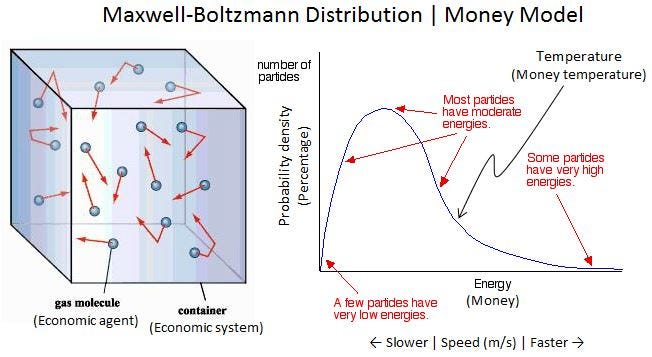
Now there are problems with simplifying this model into a “law” per se, but it forms the basis of a strong empirical argument that a) the distribution of wealth and resources naturally default to this model without interference, and b) giving everyone the same amount of money will inevitably behave the same way.
Pareto: One Man’s Fascist Is Another’s Statistician
The “principle” derived from the man is relentlessly abused in the moral argument over what “is” vs. what “ought” to be. In 1896, just a few decades before fascism took hold, Vilfredo Pareto observed in Cours d’économie politique that 80% of Italy’s land was owned by 20% of its population, and from British income tax data, around 70% of income was received by 30%.
This phenomenon, like the Golden Ratio, has been observed empirically across multiple domains. It forms the basis of one of the most important mathematical/statistical Power Laws governing distribution probability, which we know colloquially as the Pareto Distribution (not the Principle, note the term “distribution”).
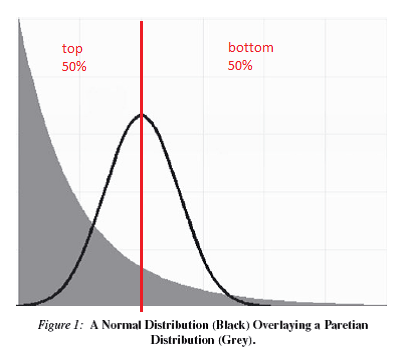
Over and over and over, we see a similar correlation: Parkinson’s Law(work expands to fill the time allotted), Zipf’s Law (the frequency of a word is inverse to its to its rank), Bradford’s Law (literature is scattered amongst journals), Price’s Law (the square root of the number of researchers write 50% of the papers), and of course, Sturgeon’s Law(90% of everything is crap).
However, you don’t get to make the leap and cite the appearance of the pattern as evidence of how things ought to be; it is merely an empirical observation of how it is.
Das Fallacy: The Fairness Of The Game
If you’re a right-wing nutjob, of course you’ll scorn anything that sounds like it contains the word Marx. But “Capital” is an exceptional read. In fact, it’s essential reading for free thinkers who love critical thought, and challenging their own assumptions.
That said, as astute as Marx’s observations of Capitalism’s problems were — and how valid — he obviously goes a little batshit in his prescription. He describes an observable problem well (inequity, alienation etc), then surmises the cause (private ownership, exploitation) and solution (assumption of the means/mode of production) so entirely erroneously, that his prediction (of a Prole revolution) inevitably flatlines.
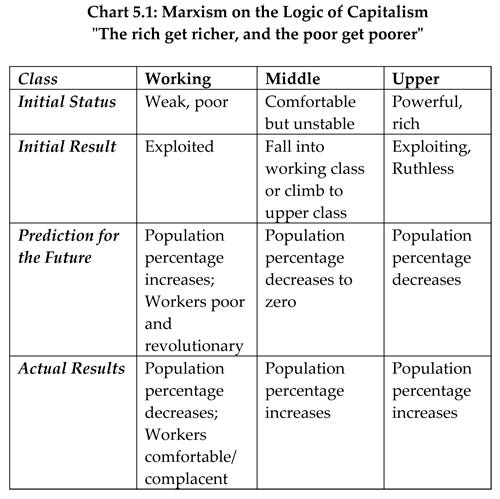
One of the most serious, and arguably egregious, mistakes he attempts to codify as an axiom, is that history is all based on struggle and conflict between social classes. It’s half-true: conflict is a byproduct of strata. Let’s not cover the development of the middle class, another glaring mistake.
Perhaps he would have done well — and it’s comfortable to say it with the benefit of hindsight — to have read Machiavelli’s absolutely amoral wisdom to His Prince, which even Hitler echoed:
It makes him hated above all things, as I have said, to be rapacious, and to be a violator of the property and women of his subjects, from both of which he must abstain. And when neither their property nor their honor is touched, the majority of men live content, and he has only to contend with the ambition of a few, whom he can curb with ease in many ways.
It turns out, dictators everywhere have already worked out the Proles aren’t bothered about the wealth being concentrated if they themselves are personally doing well. Humans, like all biological ecosystem participants, have evolved with hierarchies, are used to them, and are comfortable with them.
The true problem of resentment and frustration occurs when the perceived ability to move up the economic hierarchy (i.e. social mobility) is blocked, i.e. the struggle to move within the classes, not between them as warring parties.
If you are actively ascending the social and/or economic hierarchy (or feel you easily can), you have little need to complain. If you can’t move up, and/or are forced down, you really do. If you don’t think you can win the game, you refuse to play. It’s a perfectly valid problem.
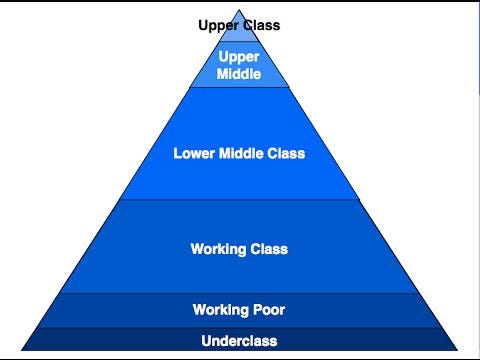
Hierarchy isn’t the problem. The inability to navigate it is.
Marx makes the historic error of prescribing that capitalism in and of itself is a fixed hierarchy (which may reasonably have been the case at that time in history), where it is truer to say it mutates into his nightmare when it becomes fixed in the way he describes.
Shithole countries all over the world, quasi-socialist and others, are figuratively defined by deliberate, corrupt, and malevolent fixing/blocking of the economic hierarchy to all but a small group. You could say when they fix the game, the players revolt. When the game is fair, the ones who don’t cheat, are happy to play.
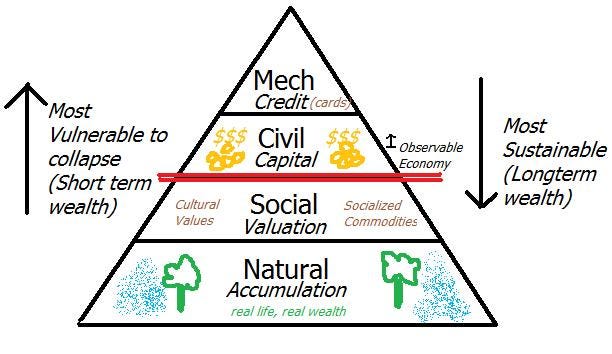
The belief in the “American Dream” (as asinine as it is), embodies this simple principle: the game’s fair, and everyone has a chance to win it. When everyone gets to play, most people do. A lot of them try to cheat, of course.
Ironically, if you force everyone to live in the same economic position, by getting rid of the game, that’s also exactly what you get: zero economic or social mobility. And again, ironically, that’s fixing the game.
Marx describes the problem as he observes it: the game is fixed. But his solution is absolutely abysmal: to rectify that, the game should be fixed.
Capitalism: The Worst System, Apart From All The Others
If you read The Champagne Socialist Traitor — sorry, as it’s colloquially known, The Guardian — you’ll understand what the Great Capitalist Satan is responsible for. All of our social ills. Not to mention why everyone should be resentful.
If you’re actually sipping that champagne in Manhattan, you’ll be exposing how the same Great Capitalism Satan has lifted more people out of penury right from their bootstraps, than any other idea in history.
Both, again, are half-true.
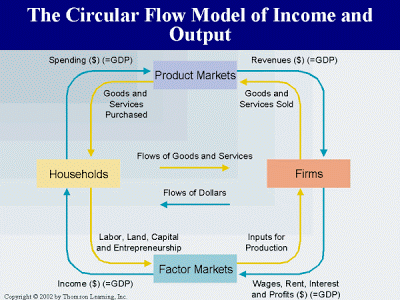
Nick Hanauer (a VC) and Eric Beinhocker (an economist) have a different take, which is quite illuminating as a pseudo-metaphysical narrative:
Capitalism’s great power in creating prosperity comes from the evolutionary way in which it encourages individuals to explore the almost infinite space of potential solutions to human problems, and then scale up and propagate ideas that work, and scale down or discard those that don’t. Understanding prosperity as solutions, and capitalism as an evolutionary problem-solving system, clarifies why it is the most effective social technology ever devised for creating rising standards of living.
https://democracyjournal.org/magazine/31/capitalism-redefined/?page=all
Capitalism, with all its flaws and inadequacies, is more than an issue around the mode and means of production: it is a mechanism which behaves in a similar way to the naturalistic biological ecosystem we exist in, to solve the constant, unending shitshow of stupid problems arriving every damned day.
Crudely, you could say it was Darwin-istic. Economist Walter Williams put it in almost religious terms:
“Prior to capitalism, the way people amassed great wealth was by looting, plundering and enslaving their fellow man. Capitalism made it possible to become wealthy by serving your fellow man.”
Socialists would argue differently, obviously. Either perspective is a highly-selective, yet tritely shallow, reading of a very complex amoral system.
Perhaps the solution to the inequality produced by traditional capitalism isn’t its abolition, but its evolution.
Diversity: For Those Who Can’t Pronounce Heterogeneity
So, what’s the optimal configuration for this proven problem-solving mechanism, once everyone believes they can play fairly?
In the Journal of Economic Theory, according to Lu Honga & Scott Page, in their paper “Problem Solving by Heterogeneous Agents”, it is in having the most diverse pool of competing answers, i.e. the most colourful marketplace:
By heterogeneity, we mean differences in how individuals represent problems internally, their perspectives, and in the algorithms they use to generate solutions, their heuristics. We find that while a collection of bounded but diverse agents can locate optimal solutions to difficult problems, problem solving firms can exhibit arbitrary marginal returns to problem solvers and that the order that problem solvers are applied to a problem can matter, so that the standard story of decreasing returns to scale may not apply to problem solving firms.
Full read: https://sites.lsa.umich.edu/scottepage/wp-content/uploads/sites/344/2015/11/jet.pdf
To a certain extent, there is a strong argument that the optimal conditions for a problem-solving system are with the widest range of solutions, but crucially, there is a clear limit to when this stops being the case — when the diversity devolves into chaos.
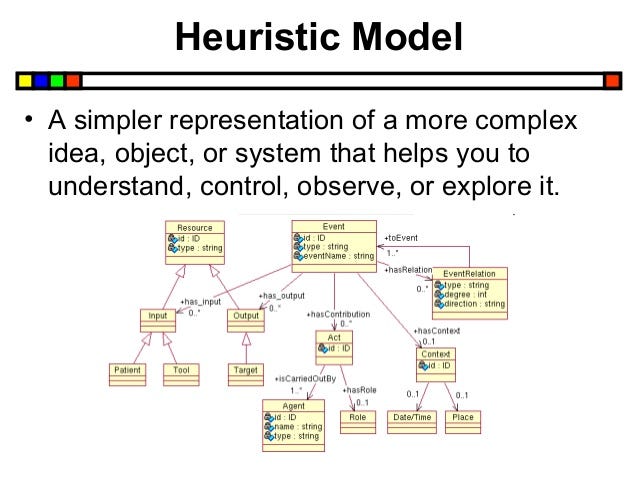
No, it’s not unbridled “inclusivity” and “diversity”, as the Armpit Hair People want to scream. Heterogeneity refers to the resulting/produced heuristics, not the ideologically grouped/categorised identity of the participants — which are not the same at all.
The New Resentment War Games
Orwell called it within Wigan Pier. The middle classes aren’t being compassionate with all the overflowing love for the poor and victimised (Jesus-like moral status); it’s hatred of those in the relative strata above.
I would offer a more nuanced suggestion: resentment at a lack of ability to move up the economic hierarchy.
Using the game model, you could actually make a case the entire “justice” meme is an elaborate “cheating” tactic to achieve significance and advancement, masquerading as moral crusade; a new avenue of the game to circumvent the blocked access. Indeed, the attention-gathering of the loudest, interestingly, seems to move them up the different hierarchies — morally, socially, and in some circumstances, economically (there are a lot of people making a LOT of money from victimhood and being rewarded extensively by the market for their crusades).
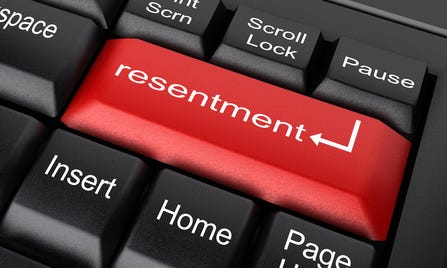
If we place the behaviour of these adults on the face of a child, we get:
You always win the game. It’s not fair. I’m not playing. We need a new game, or the game itself has to go away.
And arguably, that’s where we are. Capitalism is unfairly rigged, to blame for the world’s ills, and needs to be replaced with a different game, or go away. We’re approaching, or at, the demonstrated and inevitable equilibrium of the distribution.
That’s not to say they’re wrong. The complaint is valid: the distribution foretells how it plays out. And we have no answer.
To exacerbate it, the middle area of the distribution want their peers to team up and segment into groups based on collective characteristics, and are intent on firehosing their resentment on the opposing group identity of the teams in the strata above.
The most powerful question to Revoltniks, becomes thus:
If you felt the game were fair, would you play?
Of course they would. They doth protest too much. Even a toddler doesn’t whine that strongly unless they want to play and be in the game. But you don’t get to claim resentment is a form of “righteous anger”.
But they could easily respond with a more challenging assertion:
If we’ve reached the end equilibrium, it’s time to reset the game.
You’re Not A Socialist, You’re An Anti-Corporatist Social Democrat
However, another more tedious dynamic finds its way into the mix. The fact most of Western electorates aren’t aware that social democracy and democratic socialism aren’t particularly related, other than the words sound the same.
What they categorise is socialism, is actually social democracy. The Nordic countries are not socialist, as they are always at pains to point it out.
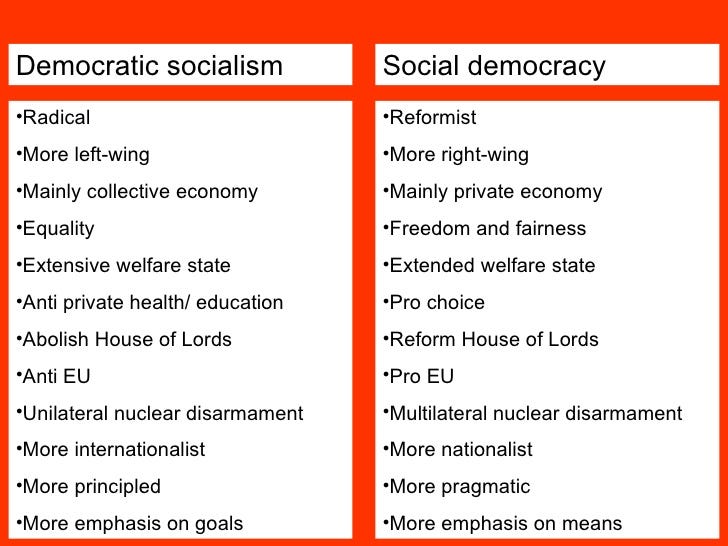
Bernie Sanders, Bill Maher (to an extent), and Alexandria Ocasio-Cortez, for example, all describe themselves as advocates of socialism.
Social democracies have a capitalist economy and no intentions of ever moving towards a socialist economy. Socialists want to shift to a pure socialist form of government. (Highly-cited Quora answer)
https://www.businessinsider.com/difference-between-socialist-and-democratic-socialist-2018-6
Moreover, the endless mischaracterisation and inaccuracy of Corporatism (oligarchy, plutocracy) as “capitalism” (by those without the capacity for nuance) further compounds the dialogue with ideological fog. Either way, it is a small group controlling and fixing the game for themselves.
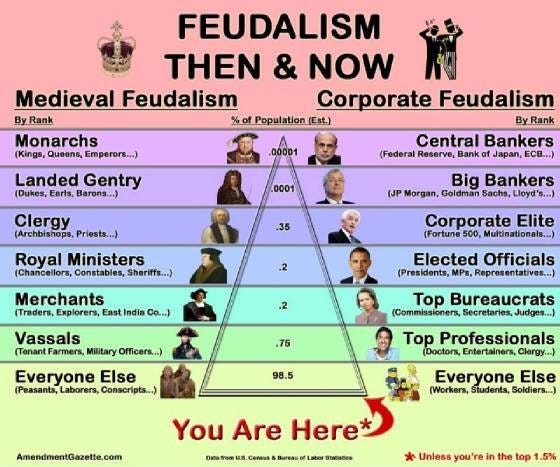
Our leaders aren’t educated in basic political or economic theory. We’re going to have problems. When they start spewing terms like collectivisation, we have to hit the “off” switch.
But on that basis, we inherit another key question: are we changing the game itself, or keeping the game, but revising the terms on which it is played?
Force, Violence, Theft, Exile: Redistributing The Rewards
Libertarians have a rallying cry which is often deafening: you have no right to my labour or private property. Once again, half-true (until you die, sovereign citizen).
Let’s take the view, for the moment, that there are a fixed amount of resources available in the economic system (partially true). Then, let’s layer on the results of the Pareto Distribution model, where, say, 30% (not 20) end up with most of them.
If your immediate “Robin Hood” answer to this extraordinarily complex problem is:
We need to take those resources from the top end and give them to the low end.
… you have a lot of thinking to do.
The problem is the people who own those resources rarely agree or volunteer, almost always tend to refuse and say no. Which is what the moral crusader plan never seems to factor into the Great Revolution.
We know what happens to them. They are bad people. Unpersons doing ungood who should be de-platformed.
If that’s the case, where they refuse to voluntarily relinquish their resources for the apparent Utopian “betterment of humankind” (as greedy or untrusting human nature always, always does), you are left with only involuntary seizure. The only way to do it is to use violence and force.
Critics, as this point, would mention tax, stating is an act of redistribution by force. However, it is a token tithe of resources, relentlessly evaded and/or avoided, and voluntary in the sense you are semi-free to move elsewhere.
This idea of “forced redistribution” reached its ultimate realisation in Dekulakisation (“collectivisation”, — “when the head is off, one does not mourn for the hair.”) around 1930. We also find it as a founding pillar of resentful anti-semitism all over the globe.
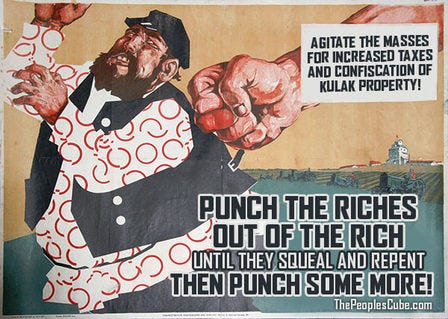
A community of wealthy and successful farmers in the Ukrainian country side who exported many of their goods across Ukraine and to the Soviet Union. [snip] Starting with spreading his collective customs to Ukraine which caused all of the livestock and crops owned by the Kulaks to be owned by the Soviet Union. This left all of the Kulaks homeless without any of their items or possessions. With the Soviets owning all of the crops and land formerly owned by the Kulaks, they have been driven into starvation inside the boundaries of the Ukrainian borders. Despite the large populations in the city, many people still ravaged the streets, starving. Some people resorting to killing birds, squirrels, and some people even resorting to cannibalism.
More: https://sites.google.com/site/stagesofgenocide/dekulakization
In case you think it is an anachronistic meme:

Ramón Muchacho, Mayor of Chacao in Caracas, said the streets of the capital of Venezuela are filled with people killing animals for food. Through Twitter, Muchacho reported that in Venezuela, it is a “painful reality” that people “hunt cats, dogs and pigeons” to ease their hunger.
This is no meme. In Panama, you hear stories from ordinary Venezuelans every day which are far worse.
Over the ocean in Zimbabwe, once the continent’s most self-sufficient and prosperous nation (and that’s saying something, considering the continent’s natural resources, and Mali once being the richest country on Earth), collectivism took hold in the form of reactionary anti-colonial Black nationalism (also seen all over the Caribbean). It has, somehow, inexplicably by the left-wing press, been described as a “great success”.

That is, until you count the cost: the complete, utter estruction of the country, including widespread murder of their Kulak farmers:
- https://www.ft.com/content/5fe10fea-cd13-11e7-b781-794ce08b24dc
- https://www.newsweek.com/g00/zimbabwe-land-robert-mugabe-white-farmers-land-reform-659611
They never seem to call it what it is. It’s “reform”, a lot of the time.
Would anyone on the left-leaning side of the debate ever go to the lengths of advocating Dekulakisation? Of course not, and it’s not reasonable to imply they would. Arguably, they are suggesting an unfair solution to their complaint the game is unfair.
A disaffected Capitalist refusing to play, like the cynic — a brokenhearted idealist — isn’t really campaigning for the abolition of the game itself, merely its terms, and their ability to play and win at it.
Note: the incidents cited here are not intended as an indictment of socialism. They are meant to illustrate the catastrophic end of “redistribution” ideas advocated at each end of the political spectrum. Is socialism exclusively responsible for dictatorship? No. Pinochet being the prime example.
[Social, Economic, Climate, Insert Word Here] Justice
The only way to perform this violent, forced seizure of private property is if you find a way to justify it on moral grounds. You can see where the argument is founded, and leads.
The moral concept of justice is quite simple: a wrong which has been committed, is reconciled. Such as the Reichstag being burnt down.
Those who inhabit the thinnest end of the distribution must have achieved it through unfair play, and immoral means.
Yet again, half true. It’s entirely possible, and can be highly influential on the distribution. Because it is possible to cheat the game and block others’ access to fair play within it, does it mean the game in and of itself is corrupt, invalid, and requires abolition? No.
Using the word “justice”, or more accurately, perverting its use, implies a wrong or crime has been committed that requires redress. It’s an absurdly manipulative sleight-of-hand which is a reprehensible form of cheating in the free marketplace of ideas. But if those capitalists have rigged the game, why not beat them at their own game, and rig another game? (Hello, Karl!)
George Carlin, the genius in grumpy bastard form, rightly mocked the conceit of those amongst us — even 20 years ago — who believed they, themselves, had any bearing on a planet nearly 5 billion years old. Yet here we are, once again:
In March this year I started to care about the planet. Like, in a big way. Before that, I fretted about it and treated it like an extremely beautiful but very sick creature I was afraid to get too attached to. [snip] And I’ve come to understand that climate justice is a way out of the capitalist and paternalist way of living that’s gotten us into this climate change mess in the first place.
“Meet the inspiring, hopeful women fighting for climate justice”
https://www.theguardian.com/commentisfree/2018/jul/24/meet-the-inspiring-hopeful-women-fighting-for-climate-justice
It’s not the Earth needing a doctor: you’re going to save the world and fight for justice? This is what happens when all you feed people is a diet of Marvel superhero movies. The vainglorious conceit of it is so preposterous it doesn’t even merit scrutiny.
The question is as deep, broad, and difficult as they come. And pejoratively framing it as “justice” for an improvable “crime” is no help to anyone.
Refusing To Play: Not Objective or Helpful
If we can agree the objects of the game are both individual and collective human flourishing and economic prosperity, we have arrived at a point in the distribution where we have extraordinarily difficult questions to answer. And currently, the people least characteristically inclined to answer them reasonably — i.e. the most resentful and disaffected — want the most consideration. That’s neither unreasonable, nor unexpected.
However, it’s the least reliable and least objective means to arrive at an optimal answer.
Perhaps the answer is to do as we already do: play multiple games, across multiple domains, with differing rewards, and diverse dynamics.
A Generation’s Challenge: Redeveloping The Game
The rules of the game are always subject to debate and negotiation, but if we look to the most successful and prosperous adherents, we can navigate to the basic guiding principles. For example, we are more likely to be able to set successful rules studying Hong Kong, than if we were Somalia.
Are the supposed socialist revolutionaries in Western culture actually socialists? No. Are they actually objecting to the game itself? No.
They are rightly complaining about the corruption of the game, and their access to it. The strategic response is to collectivise into political teams to counter it.
But do they actually, truly want to abolish the game? Or simply to restart play to the equitable beginning, where we all get $10?
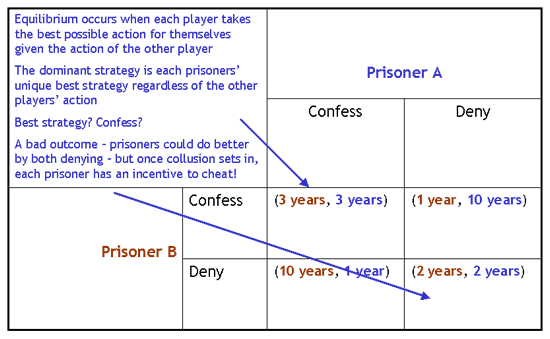
If we can agree:
- The game is the most powerful problem-solving and prosperity-creating mechanism which has evolved in our history to date;
- The rewards of the game are most effective in the economies which rigorously enforce its (perceived) rules of fair access and play;
- The most destructive effects are in societies (or sectors) which attempt to rig and cheat the game;
But…
- The game, by its nature, has an inevitably unequal result, and:
- A significant percentage of our population are complaining they can’t play, refusing to play, and/or advocating the game be changed or abolished…
… then the poisonous team politics are over.
We need to listen to the players complaining, and not just allow the winners to claim they are sore losers. In turn, those who don’t do so well, need to de-demonise the inhabitants who inevitably land on the extreme end of the histogram: their success is not our loss; we are all merely participants in the eventual distribution.
We have two critical dimensions on which to devote the collective intellect and wisdom of our age:
- The developing world needs to even establish a fair and open game, with secure integrity, for their own prosperity, and:
- Developed economies need to evolve the mechanism of the game so it fairlyresets, and/or redistributes, to allow continued play, and ability to ascend the hierarchy.
These are incredibly difficult problems. Insanely difficult. They are problems no-one has had to confront before in human history; compounded by the step-change from post-industrialism to the Information Age, and every member of the species suddenly being universally and constantly connected via the Internet.
At a time when we are most desperately in need of understanding meta-narratives, post-modernism, and its zealots, are most insistent of robbing us of them.
But then again, nobody briefed the Greatest Generation on how to cope with not just one, but two, wars that engulfed the entire world.
We’re not doing particularly well. Perhaps because we have failed to grasp the problems themselves, or maybe, their scale — i.e. the meta-narrative on our development timeline. With the species connected, what’s needed now are a generation of the Great Minds, like the Founding Fathers, to imperfectly transcend the ideological chaos.
Maybe that’s why the Russians took their Cold War revenge in our universities and elections, as they foresaw what would happen if we found our way to fixing the problems of the game, and irrevocably demonstrated its primacy.
“When the most important things in our life happen we quite often do not know, at the moment, what is going on.” (C.S. Lewis)
Perhaps my generation is standing on the greatest historic development of humankind to date, and simply does not know, at the moment, what is going on.




